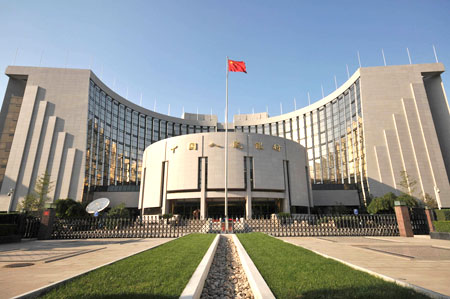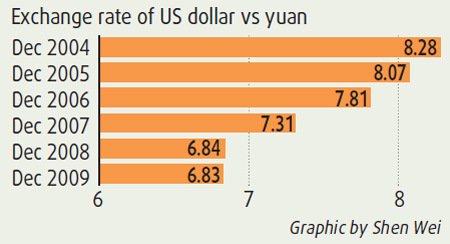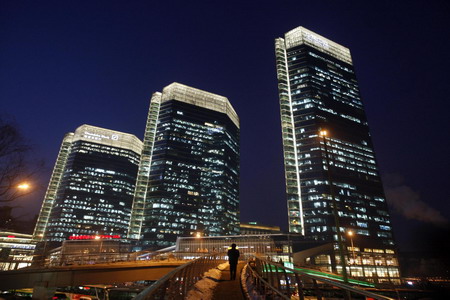Banking
- Details
- By David Cao
- Hits: 1773
The Industrial and Commercial Bank of China (ICBC) expects its Hanoi branch to be a financial bridge connecting businesses in China, Vietnam and other Southeast Asian countries, said ICBC chairman Jiang Jianqing here on Tuesday.
ICBC, the world's largest bank by market capitalization, started its business in Vietnamese capital city of Hanoi on Tuesday. It is the first foreign lender from the Chinese mainland to receive a banking permit in Vietnam in 14 years.
"The intensifying two-way economic and trade between Vietnam and China has called for the establishment of an ICBC branch in Vietnam, a fast-growing nation in Southeast Asia," said Jiang.
"Growing businesses demand a safe, convenient and clear channel for capital settlement and strong financial support," he said.
Chinese official statistics showed that China has been Vietnam' s largest trade partner for six consecutive years. Two-way trade exceeded 20 billion U.S. dollars last year. By the end of 2009, Chinese companies had invested an accumulative three billion U.S. dollars in Vietnam.
Read more: Chinese bank ICBC's Vietnam Hanoi branch established to serve bilateral trade
- Details
- By David Cao
- Hits: 1818
The Industrial and Commercial Bank of China, the world's largest lender by market value, estimated its net profit in 2009 was up about 15 percent from the previous year.
The bank said it would release the specific figures in its annual report, according to a brief statement posted on the website of the Shanghai Stock Exchange on Tuesday.
- Details
- By David Cao
- Hits: 1694
Bank of China (BOC), the country's largest foreign exchange lender, said it had already completed the preparatory work for establishing its Taiwan branch, according to a statement on the bank's website.
The bank will submit the application documents as soon as detailed regulations regarding a financial cooperation agreement between the mainland and Taiwan come out, said BOC spokeswoman Zhao Rong on Friday.
A memorandum of understanding (MOU) signed by the financial regulatory authorities of mainland and Taiwan last November will take effect on Saturday, paving the way for financial cooperation between banks on both sides of the Taiwan Strait, she added.
BOC hopes to be in the first batch of mainland lenders to operate in Taiwan. Its new branch will probably be located in Xinyi district, Taipei. with an initial management team of 20 to 30 staff, said the statement.
- Details
- By David Cao
- Hits: 1836

The central bank on Tuesday raised banks' reserve requirement ratio by 50 basis points.

The central bank's hike of the reserve requirement ratio (RRR) is just a prelude to a series of tighter monetary policies. Further steps, including increasing bank reserves, raising interest rates and direct credit controls, are widely expected to come into effect, said economists.
The People's Bank of China (PBOC), the central bank, unexpectedly hiked the reserve requirement by 50 basis points (bp) on Tuesday. The policy will come into effect on Jan 18.
- Details
- By David Cao
- Hits: 1584

The Chinese government will likely spend the full amount of its planned stimulus in 2010, the finance minister said on Sunday, despite improvements in its economy and efforts to control bank lending.
Separately, the State Council, China's Cabinet, announced measures to curb speculation in the property market.
Finance Minister Xie Xuren's comments could help reassure companies and investors that Beijing will keep spending to shore up growth.
Xie said Beijing plans to spend 992.7 billion yuan ($145.3 billion) on public investment in 2010, Xinhua News Agency reported, including 572.2 billion yuan of stimulus funds.
The news agency gave no indication whether Xie's comments included whether the rest of the stimulus due to come from other levels of government also would be fully spent.
China's stimulus calls for pumping 4 trillion yuan ($586 billion) into the economy in 2009 and 2010 through higher spending on public works and aid to industry. Some 1.18 trillion yuan of that is coming from Beijing and the rest from local governments, state companies and lending by government-owned banks.
More Articles …
Page 22 of 28